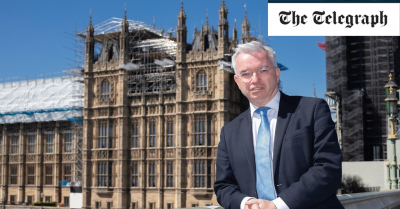Unlocking the Future: Strategies to Outsmart the Pension Age Hike to 57

Have you jumped the gun on accessing your pension? We're eager to hear your story. Drop us a line at This email address is being protected from spambots. You need JavaScript enabled to view it..
Navigating the waters of pension withdrawal isn't always straightforward. Factors like your retirement plans, savings, and work status all play a role in your decision-making process. Thankfully, the "pension freedom" rules offer some flexibility. You don't have to take your pension all at once; withdrawals can be made as needed. However, there are rules to heed to avoid tax penalties.
Currently, you can tap into your private pension without penalty from the age of 55. But mark your calendars—this age threshold will rise to 57 by 2028, aligning with governmental adjustments outlined in the Finance Act 2022. This shift mirrors the increment in the state pension age, set to climb from 65 to 67. For those born after April 6, 1973, this translates to an additional two-year waiting period before pension access becomes fair game.
But fear not, there are loopholes to explore. Telegraph Money is here to guide you through early pension access options without facing financial penalties. Some pension plans boast an "unqualified right to access" clause, granting access from age 55 without fuss. If your savings fall under this category (predating November 4, 2021), you're in luck—the legal changes won't impede your access. However, it's essential to scrutinize the terms and conditions of your specific plan, as not all may offer such leniency.
According to Alistair McQueen, head of savings and retirement at Aviva, this unqualified right is a precious asset. Even if the minimum pension age surpasses 57 in the future, those with this provision can maintain access from age 55 indefinitely.
Keep in mind, not all your pension pots may align in accessibility. Each requires individual scrutiny to determine early access eligibility.
Unlocking Early Access: Exploring Protected Pension Age Options
Looking to tap into your pension earlier than the norm? Consider the possibility of a "protected" pension age. This provision allows for withdrawals before the standard minimum pension age, offering a tantalizing option for those eager to access their funds sooner.
However, navigating this route requires careful attention to the fine print, cautions James Carter of Fidelity International. While your scheme may boast a protected age, certain conditions must be met before you can avail yourself of this benefit.
To qualify for early pension access, you must have been enrolled in the scheme prior to November 4, 2021, as stipulated by the Finance Bill 2021-22. Before this date, you must have held an unqualified right to access your pension or a lump sum from the pot before turning 57. This right may have been granted automatically or obtained through a substantive request, relieving you of the need for further permission.
Additionally, the pension scheme must have established rules allowing for early access by February 11, 2021. Certain individuals may even possess a protected pension age younger than 55 if they enrolled in a retirement annuity contract or pension scheme before April 6, 2006, colloquially known as "A Day" in the pensions industry, and belong to a prescribed profession.
Professions such as ballet dancers, footballers, reserve forces members, and even models may qualify for a pension age below 55 or even 50. However, Rachel Vahey, head of public policy at stockbroker AJ Bell, advises vigilance regarding specific rules. For instance, beneficiaries must cease working for the employer associated with the occupational scheme and must take the entire pension pot in one go to retain protection.
Moreover, individuals need not apply to HMRC for a protected earlier pension age—it is automatically awarded based on the scheme's rules. Nevertheless, transferring pensions could jeopardize this protected status unless done simultaneously with at least one other member, a practice known as a "buddy" transfer.
In summary, while the road to early pension access may seem complex, understanding the nuances of protected pension age provisions can unlock valuable opportunities for savvy savers.
Navigating Pension Options: Understanding the Impact of Transfers and Ill Health
The repercussions of transferring your pension can be significant, warns industry experts. Loss of protection upon transfer may leave individuals tethered to the limited options provided by their current scheme. This restriction could entail forfeiting access to drawdown, leaving annuity purchase as the sole avenue for pension utilization.
The ramifications of being barred from drawdown are profound, severely constraining spending options post-tax-free element withdrawal. An annuity, offering a fixed income for life without rate guarantees or death benefits, may become the only viable path forward. However, exceptions to these regulations exist, underscoring the importance of scrutinizing scheme conditions.
In cases of early retirement due to ill health, pension plans may grant access to funds before standard retirement ages. Nevertheless, the criteria and processes vary among providers. Some schemes permit access if individuals are unfit for their current occupation, while others demand incapacity for any job—a crucial distinction requiring clarification with the pension scheme.
For those enrolled in defined benefit schemes, which ensure a lifetime income stream, early pension access may trigger reduced payments. However, such reductions are often waived for health-related access. Moreover, severe illness might enable tax-free pension access, provided tax allowances remain unutilized and it's the first pension withdrawal.
Yet, caution is warranted—tax implications may arise for lump sum withdrawals post-age 75. Medical evidence substantiating the need for early access is imperative in any scenario.
Furthermore, individuals with income protection plans should weigh the impact of early pension access on insurance benefits. Premature pension utilization might diminish insurance payouts, leading to financial disadvantage.
Rachel Vahey highlights another aspect: terminally ill individuals may access untouched pension benefits as a tax-free lump sum if life expectancy is under a year, albeit subject to limits.
In essence, understanding the interplay between pension transfers, health conditions, and insurance implications is crucial for informed decision-making, safeguarding financial well-being in retirement.
In conclusion, navigating the complexities of pension access demands careful consideration of various factors, from protection implications upon transfer to health-related access provisions. While restrictions on drawdown options can pose challenges, understanding scheme conditions and seeking clarity from pension providers are essential steps. Moreover, individuals facing early retirement due to ill health must assess the potential impact on pension payouts and insurance benefits. By staying informed and seeking professional guidance when needed, individuals can navigate these challenges with confidence, ensuring their financial security in retirement.






